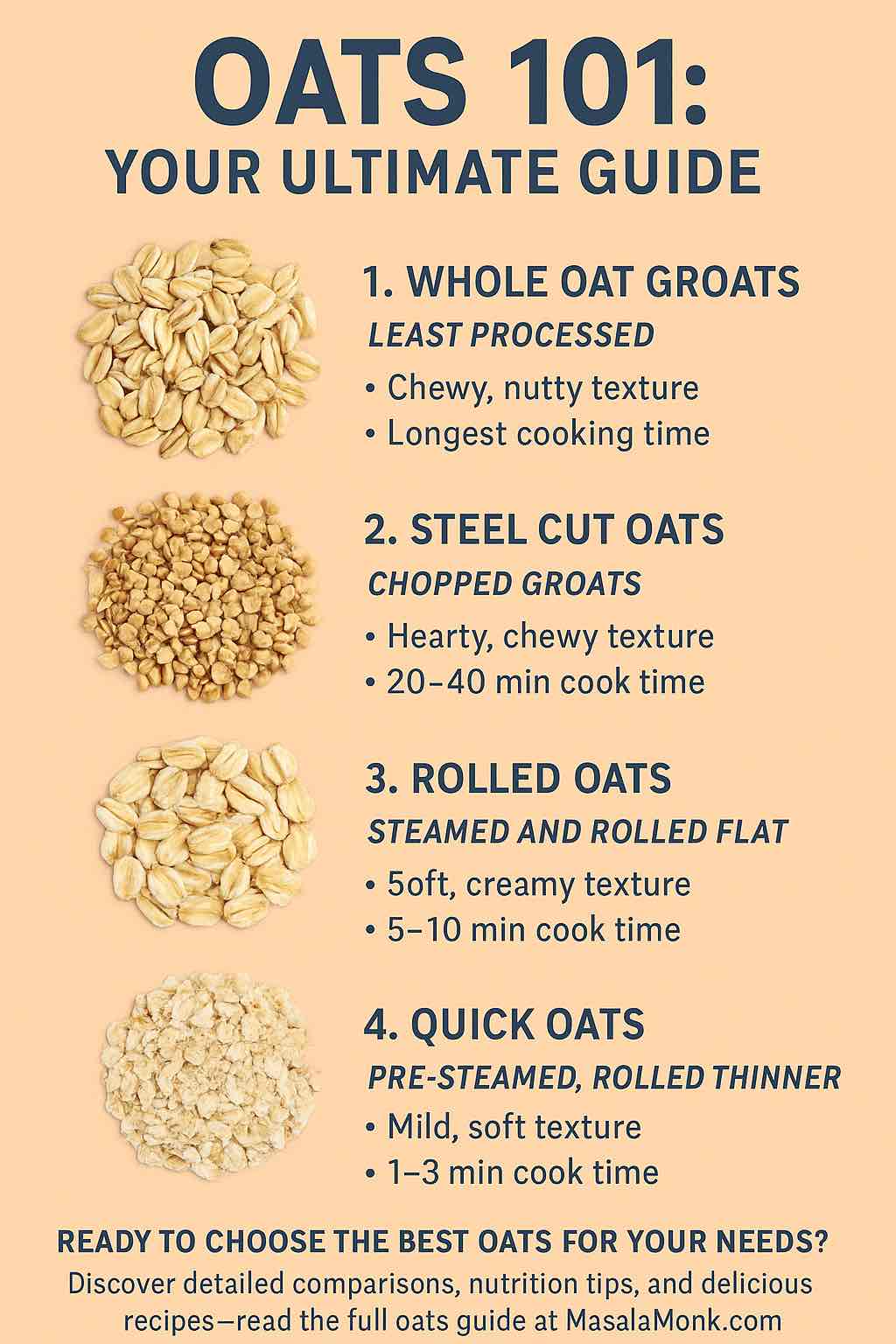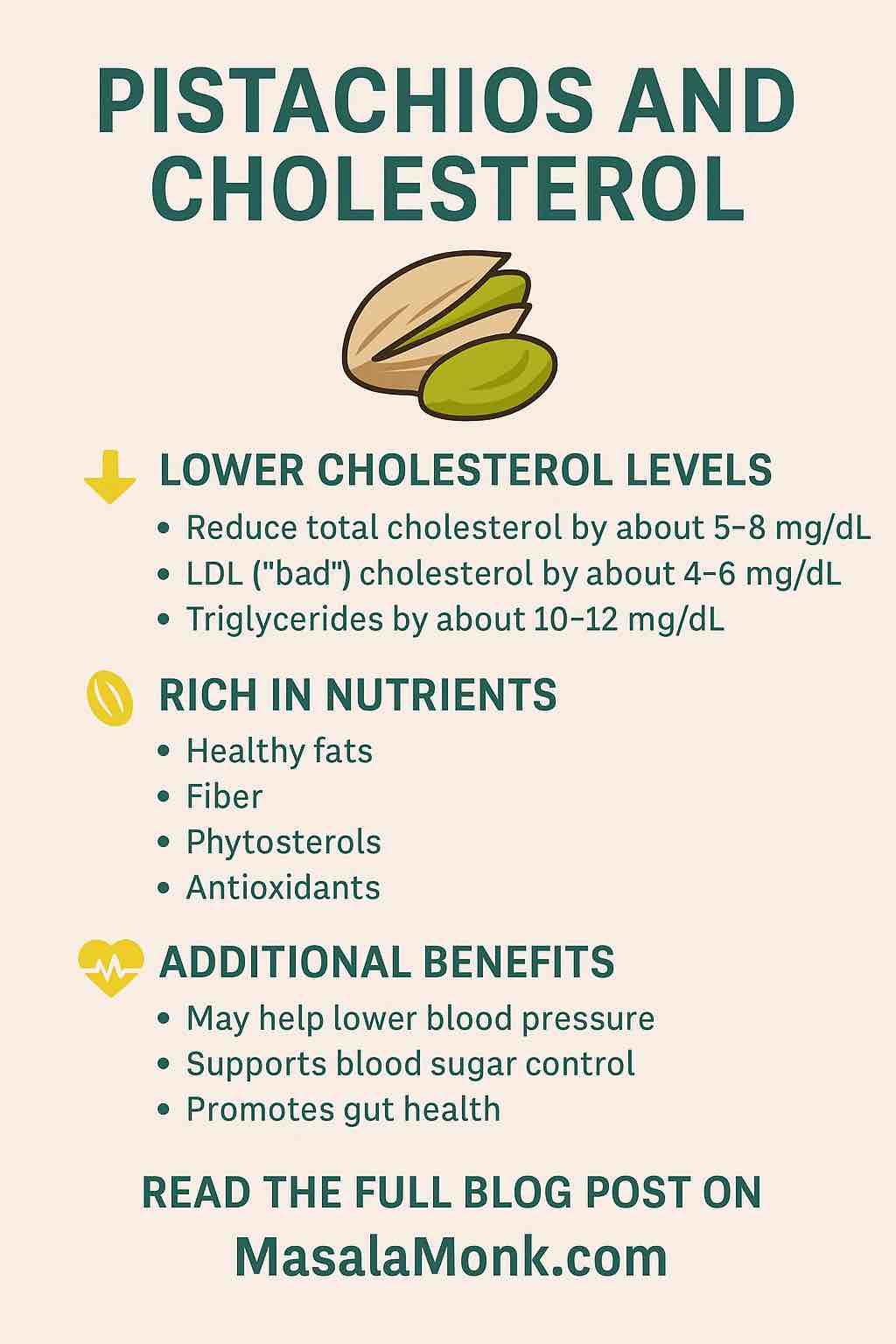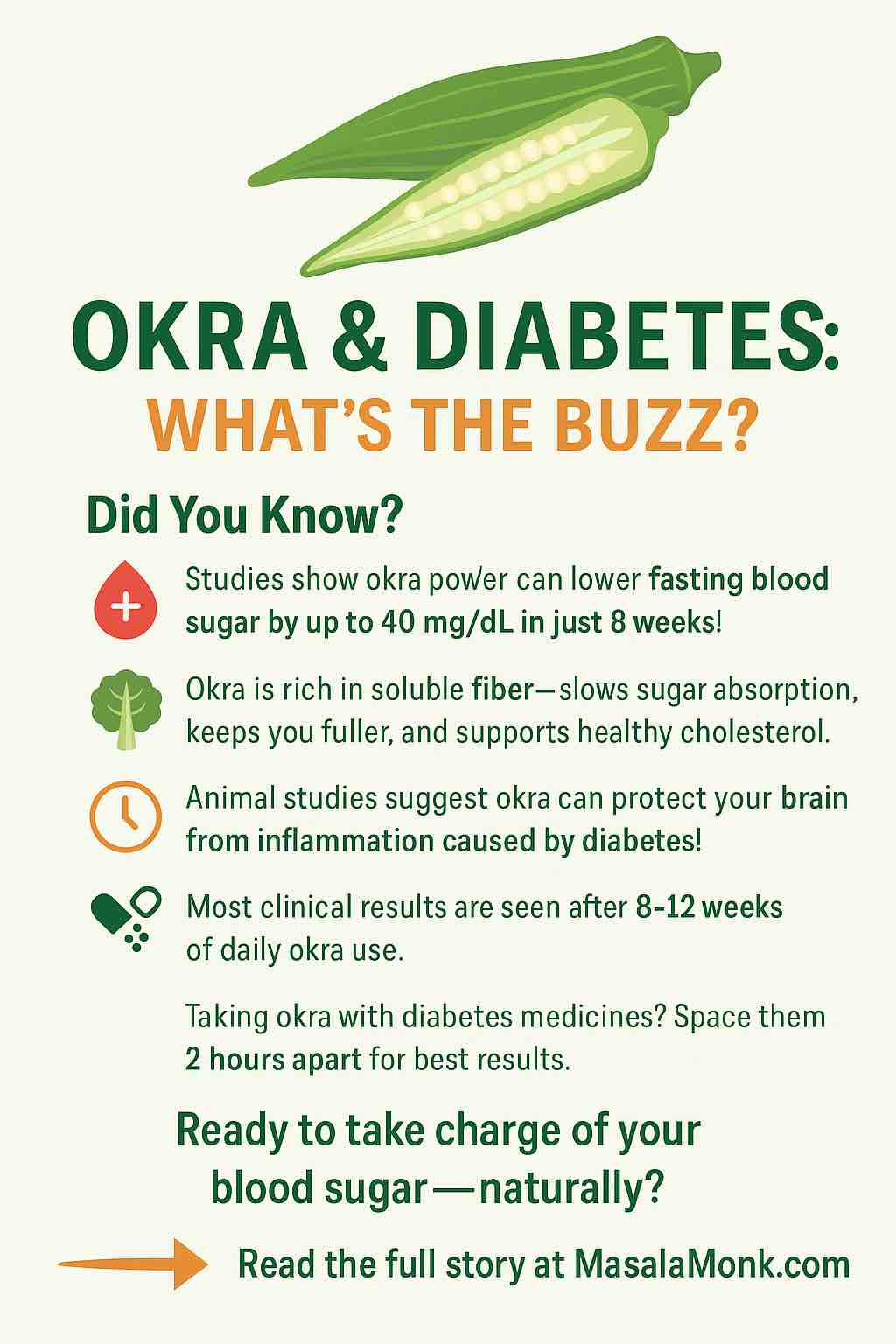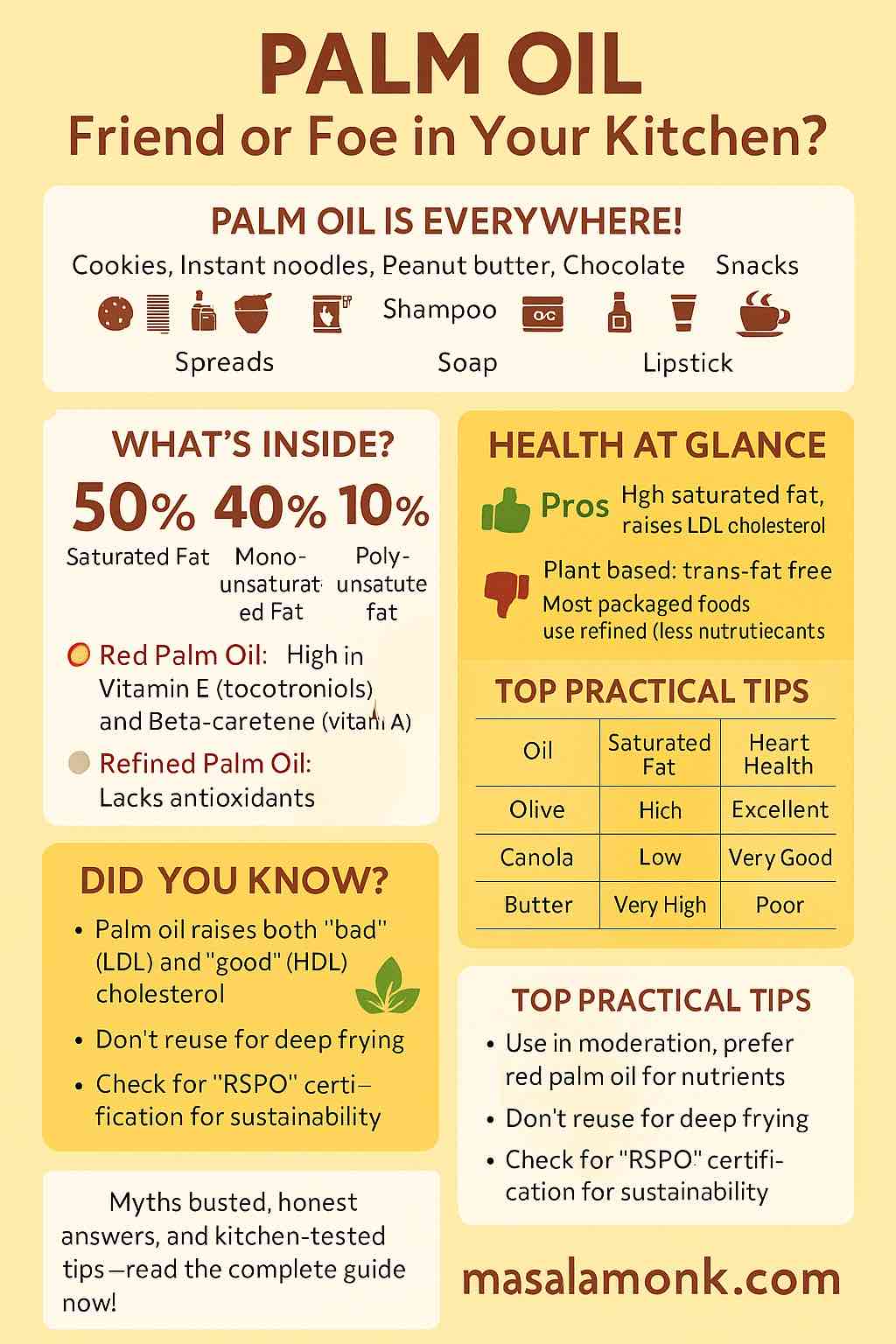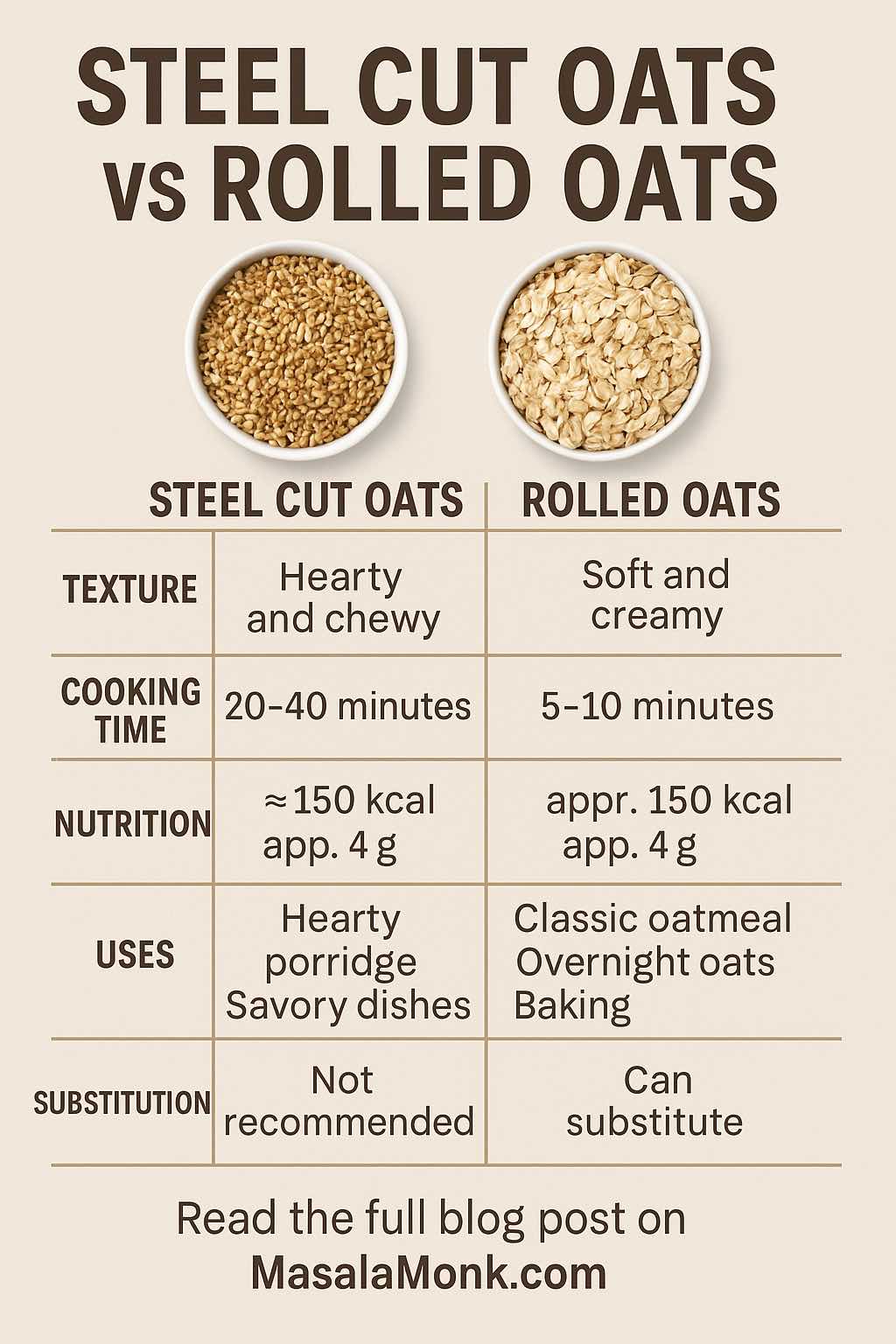
Oats are one of the healthiest, most versatile whole grains you can buy, but the options—steel cut oats and rolled oats especially—can leave even experienced cooks scratching their heads. What actually makes them different? Does one have a real advantage for health, flavor, or recipes? Here’s a practical, detailed breakdown that will make you an oats expert, with links only where you truly need more detail.
What Sets Steel Cut Oats Apart?
Steel cut oats (sometimes called Irish oats or pinhead oats) are made by chopping the whole oat groat into coarse pieces with steel blades. That’s almost all the processing they get—no flattening, rolling, or steaming. What does this mean for you?
- Texture: Extremely hearty and chewy, with a distinct, nubby bite
- Cooking time: 20–40 minutes on the stovetop, unless you soak or use a pressure cooker
- Flavor: Robust, nutty, and full-bodied
Practical tip:
Steel cut oats are perfect for those who want their breakfast to feel substantial and filling. They keep their shape well, making them ideal for meal prep—just cook a batch and reheat through the week. For those who love savory breakfast bowls (think sautéed veggies, a runny egg, spices), steel cut oats give you the structure to carry those flavors.
Why Choose Rolled Oats?
Rolled oats—also known as old-fashioned oats—start the same way, but get steamed and then flattened into thin flakes by heavy rollers. That bit of extra processing changes everything:
- Texture: Creamy and soft, with just enough chew to stay interesting
- Cooking time: Super quick—just 5–10 minutes on the stovetop, or no cooking at all for overnight oats
- Flavor: Mild, sweet, and easy to pair with fruits, spices, or honey
When to use rolled oats:
Rolled oats are the MVP of breakfast for busy mornings and for anyone who loves classic oatmeal. They also star in overnight oats, muesli, granola, pancakes, muffins, and cookies—offering just enough bite without any toughness. If you want to know more about substituting old-fashioned oats and rolled oats, check out this post on swapping the two in recipes.
Nutrition: Is There a Winner?
Steel cut oats and rolled oats are almost identical nutritionally. Both are whole grains, rich in fiber (especially beta-glucan, which is great for heart health), protein, and slow-digesting carbs. Here’s how they compare per 40g (about 1/2 cup dry):
| Type | Calories | Fiber | Protein | Fat | Glycemic Index |
|---|---|---|---|---|---|
| Steel Cut | ~150 | ~4g | ~5g | ~2.5g | 52 |
| Rolled | ~150 | ~4g | ~5g | ~2.5g | 59 |
- Steel cut oats: Slightly lower glycemic index, digest more slowly, so you feel fuller longer.
- Rolled oats: Slightly higher GI, but still a slow carb compared to most grains.
Bottom line: If you want oats for blood sugar management, weight loss, or heart health, both options are equally smart. The biggest difference is in texture and cooking time, not nutrition.
Taste & Texture: What’s Best for You?
Steel cut oats deliver a truly hearty, chewy, and substantial experience—like a rice or barley porridge. Each spoonful holds its shape and soaks up flavor slowly.
Rolled oats create the classic, creamy oatmeal you might remember from childhood, and take on the flavor of whatever you add: cinnamon, cardamom, apple, banana, or berries.
Use steel cut oats if:
- You want a breakfast that sticks with you
- You meal-prep porridge or like making savory oat bowls
- You love a chewy, substantial bite
Use rolled oats if:
- You want something quick and creamy
- You love overnight oats or make granola/muffins often
- You want oats to absorb flavors fast (great for sweet or spiced bowls)
Cooking, Prep, and Everyday Tips
Steel Cut Oats:
- Stovetop: Simmer 1 part oats to 3–4 parts liquid for 20–40 minutes
- Pressure Cooker: 10–12 minutes, natural release
- Soak overnight to cut cook time in half
- Batch-cook for the week; they reheat beautifully with a little milk
Rolled Oats:
- Stovetop: 1 part oats to 2 parts liquid, ready in 5–10 minutes
- Overnight Oats: Soak in equal parts milk/yogurt and oats overnight in the fridge—no cooking!
- Microwave: 2–3 minutes for a creamy bowl on busy mornings
- Bake into cookies, bars, or granola for added fiber and texture
Pro tip:
If you bake with oats, always use rolled/old-fashioned oats—steel cut are too tough for most baked recipes. Rolled oats give you the best of both worlds: nutrition, speed, and a little bite.
Can You Substitute One for the Other?
Not really, except for simple porridge. Steel cut oats are just too dense and require too much liquid for most recipes that call for rolled oats—especially baking and overnight oats. If a recipe calls for steel cut oats, using rolled oats will make the result much softer and creamier. For traditional oatmeal bowls, you can swap in a pinch (just adjust cook time), but for baking or muesli, stick to rolled.
If you want a full breakdown on oat types and swaps (including quick and instant oats), you’ll love our complete oat guide.
Substitution Guide
| Use/Recipe | Steel Cut → Rolled | Rolled → Steel Cut |
|---|---|---|
| Hot Porridge | Not recommended* | Yes, but creamier |
| Overnight Oats | Only if pre-cooked | Yes |
| Cookies/Granola | No | Yes (but more chewy) |
| Savory Bowls | Yes | Yes |
*Steel cut oats won’t soften enough without long cooking—don’t use them raw for overnight oats or in quick bakes.
Practical Uses & Ideas
- Steel Cut Oats:
- Make a big batch, store in the fridge, and enjoy all week
- Use in savory bowls with veggies, sautéed greens, and eggs
- Try oat risotto: cook steel cut oats in broth and finish with Parmesan
- Rolled Oats:
- Prep overnight oats in jars for grab-and-go breakfasts
- Bake into cookies or granola for easy snacks
- Blend into smoothies for a creamy, fiber-rich boost
- Add to pancake or muffin batter for extra nutrition
Conclusion
There’s no wrong answer in the steel cut vs rolled oats debate—just what fits your taste, lifestyle, and recipes.
- Want chewy and hearty? Steel cut is for you.
- Want quick and versatile? Rolled oats win.
Both will fill you up, boost your health, and make breakfast better.
Hungry for more oat insights? Read our Ultimate Guide to Oats for a deep dive on every oat type, nutrition, and the best ways to use them in your kitchen.
Related Reading
- Guide to Oats: Types, Nutrition, and Differences Explained
- Are Quick Oats the Same as Instant Oats?
- Can You Substitute Old-Fashioned Oats for Rolled Oats?
- Oats vs Oatmeal: What’s the Difference?
10 FAQs – Steel Cut Oats vs Rolled Oats
1. Which is healthier, steel cut oats or rolled oats?
Both are equally healthy; they have nearly identical nutrition. Steel cut oats have a slightly lower glycemic index, which means slower digestion.
2. Do steel cut oats and rolled oats taste the same?
No. Steel cut oats are chewier and nuttier, while rolled oats are softer and creamier.
3. Can I use steel cut oats in recipes that call for rolled oats?
Usually not. Steel cut oats take much longer to cook and won’t soften properly in most baking or overnight oats recipes.
4. Are steel cut oats better for weight loss?
Not necessarily. Both types support weight management due to high fiber content; steel cut oats may keep you full slightly longer.
5. Are rolled oats and old-fashioned oats the same?
Yes, they are exactly the same. The terms are used interchangeably.
6. Can I make overnight oats with steel cut oats?
Only if you cook them first, or soak them for at least 24 hours. Otherwise, they will remain too hard.
7. Which cooks faster: steel cut oats or rolled oats?
Rolled oats cook much faster—5 to 10 minutes. Steel cut oats require 20 to 40 minutes unless soaked or pressure cooked.
8. Are there any nutritional differences between steel cut and rolled oats?
Macros (protein, fiber, calories) are nearly identical. The main difference is in texture and cooking time, not nutrition.
9. Can I use rolled oats instead of steel cut oats in porridge?
Yes, but your porridge will be creamier and softer, with less chew.
10. Do both types of oats help lower cholesterol?
Yes, both are high in beta-glucan fiber, which is known to help lower cholesterol levels.

